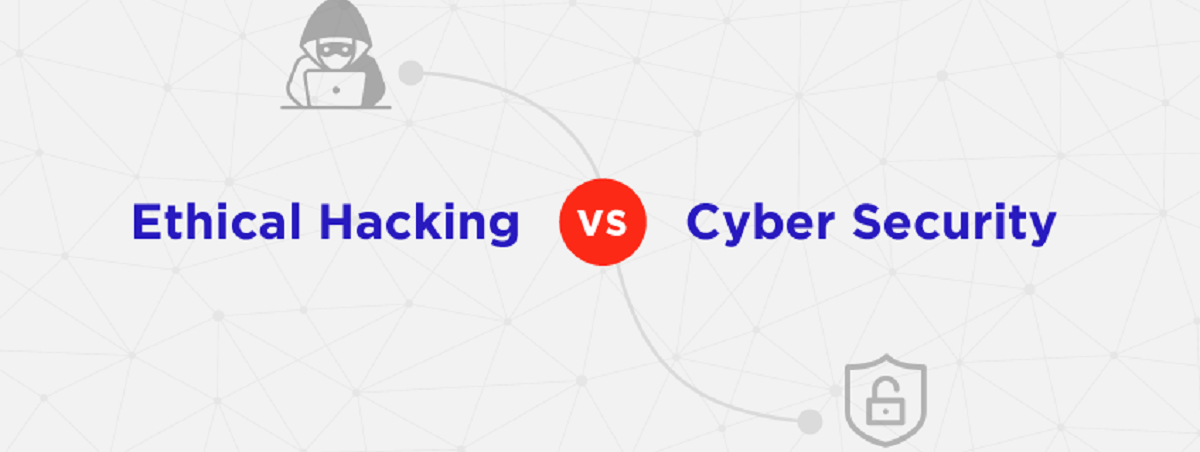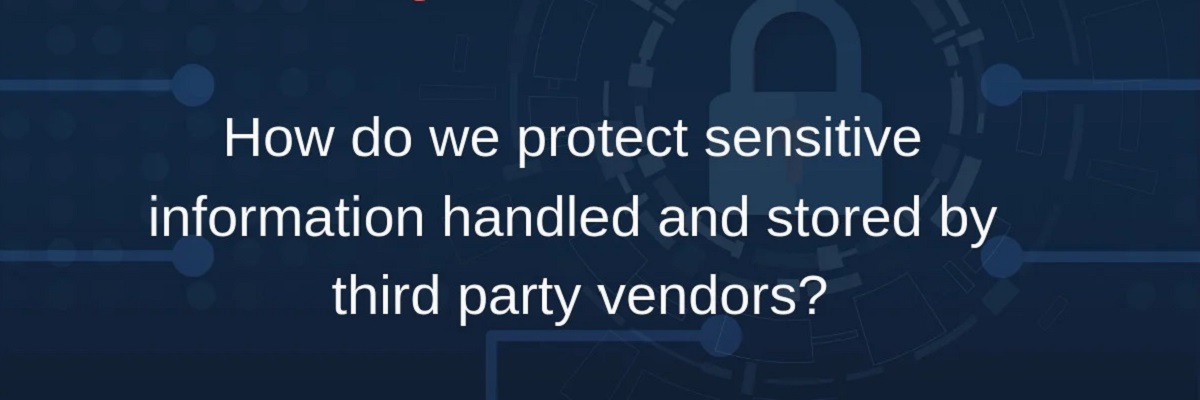Introduction
Cybersecurity has become a critical concern in today’s digital age. With the increasing reliance on technology, the internet, and interconnected systems, the need to protect sensitive information and infrastructure from cyber threats has never been more important. However, along with the advancements in cybersecurity, a number of ethical issues have also emerged.
It is crucial to understand and address these ethical issues in cybersecurity to ensure that security measures and practices align with moral and societal standards. This article examines some of the key ethical concerns in cybersecurity, ranging from unauthorized access to the manipulation of individuals, and discusses their implications.
Unauthorized access and data breaches are central ethical concerns in cybersecurity. Cybercriminals exploit vulnerabilities and gain unauthorized access to sensitive information, causing significant financial and reputational damage to individuals and organizations. The ethical dilemma lies in finding a balance between protecting confidential data and respecting individuals’ privacy rights.
Furthermore, privacy concerns and data collection have sparked ethical debates. With the rapid growth of technologies such as Internet of Things (IoT) devices, vast amounts of personal data are collected, often without users’ explicit consent. This raises questions about the ethical usage and storage of this data, as well as the potential for its misuse.
Cyberattacks and hacking, including large-scale data breaches, pose significant ethical challenges. The individuals or groups behind these attacks cause harm and disrupt the lives of millions. The ethical dilemma lies in deciding how to respond to such attacks, whether to pursue criminal charges or focus on preventive measures and cybersecurity training.
Artificial Intelligence (AI) and automation in cybersecurity raise ethical concerns regarding accountability and bias. While AI can enhance security measures and identify threats more efficiently, there is an ethical responsibility to ensure that these technologies are developed and used ethically, without compromising fairness or discriminating against certain groups.
Unauthorized Access and Data Breaches
One of the most prevalent ethical issues in cybersecurity is the unauthorized access and data breaches that occur regularly. Cybercriminals exploit vulnerabilities in systems and networks to gain unauthorized access to sensitive information, leading to considerable financial and reputational damage for individuals and organizations alike.
The ethical dilemma surrounding unauthorized access lies in finding the right balance between protecting confidential data and respecting individuals’ rights to privacy. On one hand, organizations have a responsibility to safeguard sensitive data and prevent unauthorized access. This involves implementing robust security measures such as firewalls, encryption, and multi-factor authentication. However, these measures can sometimes encroach upon users’ privacy rights, raising questions about the ethical boundaries of data protection.
Data breaches, whether caused by external attacks or internal vulnerabilities, have far-reaching consequences. Personal information, including names, addresses, social security numbers, and financial data, can be exposed, jeopardizing individuals’ identities and leading to fraud, identity theft, and financial losses. Organizations that experience data breaches also suffer severe reputational damage, eroding customer trust and confidence.
When it comes to data breaches, there are ethical considerations in terms of transparency and accountability. It is essential for organizations to promptly inform affected individuals about the breach, providing them with clear and accurate information about the extent of the compromise. This transparency demonstrates respect for individuals and helps them take necessary measures to protect themselves. Moreover, organizations should be held accountable for their negligence or lack of adequate security measures that contributed to the breach.
To address these ethical concerns, organizations must prioritize cybersecurity and invest in advanced technologies, as well as regularly conduct vulnerability assessments and penetration testing to identify and patch potential weaknesses. Additionally, organizations should enforce strict access control policies and ensure that data is encrypted both at rest and in transit. Moreover, individuals must also play a part in maintaining their own cybersecurity by practicing strong password hygiene, being cautious of phishing attempts, and regularly updating their devices and applications.
Ultimately, striking the right balance between protecting sensitive data and respecting individuals’ privacy rights is crucial in addressing the ethical concerns surrounding unauthorized access and data breaches. Organizations must make ethical decisions and implement robust cybersecurity measures to strengthen their defenses and mitigate the risk of unauthorized access and devastating data breaches.
Privacy Concerns and Data Collection
In today’s digital era, privacy concerns and the collection of personal data have become significant ethical issues in cybersecurity. With the proliferation of technology and the rise of the Internet of Things (IoT), vast amounts of personal data are being collected, often without individuals’ explicit consent or knowledge.
The ethical dilemma lies in the ethical usage and storage of this collected data, as well as the potential for its misuse. Many websites, applications, and online services track users’ activities and gather data about their preferences, behaviors, and personal information. This data is often used for targeted advertising, personalization of services, and analyzing consumer patterns. However, this raises concerns about invasion of privacy and the transparency of data collection practices.
Individuals have the right to know what data is being collected, how it is being used, and whether it is shared with third parties. Transparency and informed consent are essential elements in addressing these privacy concerns ethically. Organizations need to provide clear and concise privacy policies and obtain explicit consent from individuals before collecting and utilizing their data. This empowers individuals to make informed decisions about sharing their personal information and ensures that their privacy rights are respected.
Data breaches and unauthorized access also amplify privacy concerns. When personal data is compromised due to a breach, individuals’ privacy is violated, putting them at risk of identity theft, fraud, and other malicious activities. Organizations must address these concerns by implementing robust security measures, including encryption and access controls, to protect the privacy of users’ data.
Another ethical aspect of data collection is the notion of data minimization. This principle advocates for organizations to collect only the necessary data required to provide their services or fulfill their purposes. The indiscriminate collection of data can result in the accumulation of vast amounts of personal information, creating potential risks for individuals’ privacy and security. By adhering to the principle of data minimization, organizations can demonstrate their commitment to ethical data practices and prioritize individual privacy.
Furthermore, organizations must ensure that the data they collect is securely stored and protected. This involves implementing appropriate security measures, such as encryption, regular system updates, and secure data storage practices. By safeguarding collected data, organizations can mitigate the risk of data breaches and unauthorized access, thereby upholding individuals’ right to privacy.
Overall, addressing privacy concerns and ethical data collection practices in cybersecurity requires a multi-faceted approach. Organizations must prioritize transparency, informed consent, and data minimization, while also implementing robust security measures to protect individuals’ privacy and prevent unauthorized access to personal data. Only by integrating ethical considerations into data collection processes can we maintain a balance between leveraging data for innovation and respecting individuals’ privacy rights.
Cyberattacks and Hacking
Cyberattacks and hacking are ethical concerns that pose significant threats to individuals, organizations, and even national security. These malicious activities involve unauthorized access, disruption, and exploitation of computer systems, networks, and data.
With the increasing sophistication and prevalence of cyberattacks, the ethical dilemma lies in determining how to respond to these attacks and mitigate their impact. Cybercriminals employ various techniques such as malware, phishing, ransomware, and denial-of-service (DoS) attacks to compromise systems and steal sensitive information. The repercussions of these attacks can be devastating, ranging from financial losses to reputational damage and even compromised safety.
When it comes to addressing cyberattacks, there are ethical considerations regarding the balance between punitive measures and preventive actions. While it is vital to hold cybercriminals accountable for their actions, simply focusing on prosecution may not effectively address the broader issue of cybersecurity. Emphasizing prevention through improved security measures, education, and awareness can help mitigate the risk of cyberattacks.
Another ethical aspect of cyberattacks involves the vulnerability disclosure process. When security researchers discover vulnerabilities in systems or software, they face an ethical dilemma regarding disclosure. Promptly disclosing vulnerabilities to the affected parties allows for timely mitigation and protection. However, this can sometimes lead to ethical gray areas, as it exposes the vulnerability to potential exploitation by cybercriminals before a fix is developed.
To promote ethical practices in vulnerability disclosure, responsible disclosure guidelines have been established. These guidelines provide a framework for security researchers to disclose vulnerabilities to the relevant stakeholders while allowing sufficient time for patches or fixes to be developed. By adhering to responsible disclosure practices, researchers can contribute to improving cybersecurity without unintentionally aiding malicious actors.
Cybersecurity professionals face ethical challenges related to the use of offensive security techniques. Offensive security, commonly known as hacking back, involves retaliating against attackers or attempting to infiltrate their systems to gather intelligence. The ethical dilemma lies in the potential for collateral damage, unintended consequences, and legality of such actions. The use of offensive security techniques must be approached with caution and in compliance with legal and ethical standards.
Furthermore, organizations and governments need to address the ethical implications of state-sponsored cyberattacks or cyber warfare. Such attacks can have severe consequences on infrastructures, economies, and individuals. Governments must consider the ethical implications of engaging in offensive cyber operations and maintain accountability for their actions.
Preventing and mitigating cyberattacks requires a multi-faceted approach that combines technological advancements, education, legislation, and ethical decision-making. By strengthening cybersecurity measures, encouraging responsible disclosure, and addressing the ethical considerations surrounding offensive security and state-sponsored attacks, we can work towards a safer and more secure digital environment.
Artificial Intelligence and Automation Ethics
The integration of artificial intelligence (AI) and automation in cybersecurity has revolutionized the field, enabling more efficient threat detection, response, and mitigation. However, with the rise of AI and automation, ethical concerns have emerged, requiring careful consideration to ensure that these technologies are developed and used ethically.
One significant ethical consideration is accountability and bias in AI-driven cybersecurity systems. AI algorithms are trained on large datasets, which can inadvertently contain biases, leading to discriminatory outcomes. For example, if an AI system is trained on data that is predominantly from a certain demographic, it may result in biased decision-making that discriminates against other groups. Ethical AI development demands the identification, mitigation, and elimination of biases to ensure fairness in the outcomes produced by these systems.
AI and automation systems in cybersecurity also raise concerns regarding the reduction of human involvement. While automation can enhance efficiency and productivity, fully reliance on AI systems can lead to a lack of human oversight and accountability. The ethical dilemma lies in striking the right balance between automation and human intervention, ensuring that human intelligence and ethical decision-making are not compromised. Human experts should have the ability to review and validate the decisions made by AI systems to avoid erroneous or unethical outcomes.
Another ethical consideration is the impact of AI and automation on the workforce. As AI and automation technologies continue to advance, there is a concern that they may replace human cybersecurity professionals, leading to job displacement. Organizational leaders and policymakers must consider the ethical implications of these technological advancements and ensure that the transition to a more automated cybersecurity landscape is managed responsibly, considering the potential impact on individuals and communities.
Moreover, there is an ethical responsibility to ensure that AI and automation systems are used for the benefit of society and aligned with human values. The development and deployment of these technologies must be guided by ethical frameworks that prioritize the well-being of individuals, protect privacy, and uphold human rights. Ethical considerations should be incorporated into the design, implementation, and use of AI and automation in cybersecurity to avoid potential harm and unintended consequences.
Additionally, AI and automation can raise questions about the transparency and explainability of decision-making processes. When AI systems make complex cybersecurity decisions, it may be challenging for human experts to understand the reasoning behind these decisions. Ensuring transparency and explainability is crucial for building trust in these systems and allowing human oversight to prevent unjust or unethical outcomes.
Overall, ethical considerations are vital as AI and automation continue to shape the cybersecurity landscape. By addressing issues related to accountability, bias, human involvement, job displacement, societal impact, transparency, and explainability, we can harness the potential of these technologies while upholding ethical standards and ensuring a secure future.
Ethical Dilemmas in Vulnerability Disclosure
Vulnerability disclosure is an important aspect of cybersecurity that involves the responsible reporting and disclosure of security vulnerabilities in software, systems, or networks. While the goal is to improve security and protect users, ethical dilemmas arise in the process of vulnerability disclosure that must be carefully navigated.
One of the primary ethical dilemmas in vulnerability disclosure relates to the timing of disclosure. When a security researcher discovers a vulnerability, they face a difficult decision regarding when and how to disclose it. On one hand, immediate disclosure can help expedite the development of a patch or fix, allowing users to protect themselves. However, disclosing a vulnerability too quickly can also give malicious actors an opportunity to exploit it before a solution is in place. This ethical dilemma requires security researchers to strike a balance between prompt disclosure for the greater good and allowing sufficient time for the affected parties to develop and implement a solution.
Another ethical consideration in vulnerability disclosure is the responsibility to notify affected parties. When a vulnerability is discovered, security researchers need to determine who should be notified, such as the software developer, system administrator, or the public. The choice of who to notify can have significant implications, as it affects the speed and effectiveness of remediation efforts. Researchers must consider the potential harm that could occur if they fail to notify the relevant parties promptly, as well as the potential risks of public disclosure before a fix is available.
Additionally, ethical dilemmas arise regarding the public disclosure of vulnerabilities. There is a fine line between responsible disclosure and full public disclosure. While responsible disclosure involves disclosing vulnerabilities to the affected parties, public disclosure, also known as “full disclosure,” involves making vulnerabilities public knowledge. The ethical dilemma lies in the potential consequences of public disclosure, as it can lead to increased risks for users who may not have the means to protect themselves. Therefore, the decision to make a vulnerability publicly known must be carefully evaluated, taking into account the potential harm and the availability of patches or mitigations.
Furthermore, the ethical implications of selling or withholding vulnerability information for financial gain have also been a subject of debate. Some security researchers and organizations engage in the practice of selling vulnerability information to interested parties, such as governments or private entities. This raises concerns about equity and access to security, as vulnerabilities can be exploited to conduct malicious activities if they are not disclosed to the wider community. It is important to consider the ethical implications of prioritizing financial gain over the collective security of users and organizations.
To navigate these ethical dilemmas in vulnerability disclosure, industry standards and best practices have been developed. Responsible disclosure guidelines provide a framework for security researchers to disclose vulnerabilities in a manner that prioritizes the safety and protection of users. Collaboration between researchers, developers, and affected parties is encouraged to ensure prompt remediation and secure systems.
Ultimately, vulnerability disclosure is a complex process that requires careful ethical consideration. Balancing the need for prompt disclosure, responsible notification, and careful public disclosure is crucial to maintain the security and well-being of users and organizations.
Ethical Implications of Government Surveillance
Government surveillance has become a contentious topic in the realm of cybersecurity, with significant ethical implications at stake. While surveillance can be positioned as a tool to enhance national security and combat criminal activities, it also raises concerns about privacy, civil liberties, and the potential for abuse of power.
One of the key ethical concerns with government surveillance is the balance between security and privacy. Surveillance practices often involve collecting vast amounts of personal data from individuals, including their online activities, communications, and even physical movements. This extensive monitoring can encroach upon individuals’ rights to privacy, raising questions about the ethical boundaries of surveillance and the impact on personal freedoms.
An ethical dilemma arises when determining the necessity and proportional use of surveillance measures. While it is essential for governments to take measures to protect national security and prevent terrorist attacks or other crimes, the methods and extent of surveillance adopted should be justified and proportionate. Surveillance measures that are perceived as excessive or intrusive can erode public trust and create a chilling effect on freedom of expression and individual autonomy.
Another ethical consideration is the potential for abuse of surveillance powers. Surveillance systems, if left unchecked, can be susceptible to misuse, leading to unauthorized access, data breaches, and the violation of individuals’ rights. There is an inherent ethical responsibility for governments to establish and enforce robust oversight mechanisms that ensure accountability, transparency, and compliance with legal and ethical principles.
Mass surveillance programs also raise ethical concerns regarding the profiling and targeting of specific individuals or groups based on factors such as race, religion, or political beliefs. These practices can result in discrimination, social injustice, and the erosion of trust within communities. Governments must exercise caution to ensure that surveillance activities are not used as a means to unjustly target and marginalize certain individuals or communities.
Moreover, the secrecy surrounding government surveillance programs poses ethical challenges. Lack of transparency inhibits public scrutiny and accountability, making it difficult for individuals to exercise their rights and challenge potential infringements. Ethical surveillance practices require openness, disclosure, and public discourse to ensure that surveillance activities align with democratic principles and respect the rights of citizens.
Addressing the ethical implications of government surveillance requires a comprehensive approach that balances security concerns with individual rights and civil liberties. Policy frameworks must be developed, taking into account privacy safeguards, strict oversight mechanisms, and accountability measures. Public engagement in decision-making processes and meaningful transparency are crucial to foster trust, respect civil liberties, and preserve a democratic society.
Furthermore, embracing technologies that incorporate privacy by design, encryption, and anonymization techniques can help strike a balance between surveillance capabilities and individual privacy rights. Governments must prioritize legal and ethical considerations, integrating them into surveillance practices to ensure that the potential benefits of surveillance are realized in a manner that upholds the fundamental values of a democratic society.
Social Engineering and Manipulation of Individuals
Social engineering is a technique employed by cybercriminals to manipulate individuals and exploit their trust, naivety, or vulnerabilities for malicious purposes. It involves psychological manipulation and trickery, often aimed at deceiving individuals into revealing sensitive information, performing certain actions, or granting unauthorized access.
The ethical implications of social engineering lie in the violation of individuals’ trust, privacy, and the potential harm caused by the manipulation. The techniques used in social engineering can range from impersonation and phishing emails to the creation of fake websites or phone calls. These tactics exploit human psychology, such as fear, curiosity, or authority, to manipulate individuals into disclosing confidential information or engaging in activities that compromise their security.
One of the ethical dilemmas surrounding social engineering is the exploitation of unsuspecting individuals who may be less informed or technologically savvy. Cybercriminals target vulnerable individuals, such as the elderly or those with limited digital literacy, taking advantage of their lack of knowledge and understanding of potential risks. This raises concerns about the potential harm caused to individuals who may suffer financial losses, identity theft, or emotional distress as a result of the manipulation.
Furthermore, the tactics employed in social engineering can have broader societal implications. Manipulating individuals to divulge sensitive information or perform actions can lead to data breaches, financial fraud, or even compromise critical infrastructure. The ethical dilemma lies in not only the harm caused to individuals but also the potential for ripple effects, affecting organizations, communities, and society at large.
Another ethical consideration is the responsibility of organizations to educate and protect individuals against social engineering attacks. It is vital for organizations to implement robust security measures, conduct regular awareness training, and provide individuals with the knowledge and tools to identify and respond to social engineering attempts. Failing to do so can leave individuals vulnerable to manipulation and exploitation.
Additionally, ethical questions arise around the use of social engineering techniques for defensive purposes. Ethical hacking, often referred to as penetration testing, involves using social engineering tactics to assess an organization’s security vulnerabilities. While ethical hacking’s intent is to identify weaknesses and improve security, there is an ethical responsibility to ensure that the techniques employed do not cause harm or distress to individuals unknowingly involved in the assessment.
Addressing the ethical implications of social engineering requires a multi-faceted approach. Education, awareness, and training are crucial in empowering individuals to recognize and respond to social engineering attempts. Organizations must implement strong security measures, regularly assess and mitigate vulnerabilities, and prioritize the protection of individuals’ personal information. Collaboration between industry, government, and educational institutions can help establish ethical guidelines and best practices to combat social engineering effectively.
Ultimately, by raising awareness, promoting ethical practices, and implementing robust security measures, we can mitigate the risks associated with social engineering, protect individuals from manipulation, and build a more secure digital ecosystem.
Impact on Democracy and Elections
In the digital age, the impact of cybersecurity breaches and manipulative tactics on democratic processes and elections has become a pressing issue. The integrity of democratic systems relies on fair and transparent elections, and any compromise to this fundamental principle raises significant ethical concerns.
Cybersecurity threats, such as hacking, disinformation campaigns, and influence operations, can have far-reaching consequences on the democratic process. The ability for malicious actors to manipulate the information landscape, undermine trust, and influence voter behavior erodes the foundations of democracy. The ethical implications arise from the intentional efforts to deceive and manipulate individuals for political gain.
One of the key ethical dilemmas is the dissemination of disinformation and fake news. False information spread through social media, websites, and other digital platforms can sway public opinion, polarize communities, and create divisions. The intentional spread of disinformation is aimed at undermining trust in democratic institutions, distorting public discourse, and manipulating election outcomes. The challenge lies in finding the balance between freedom of expression and the ethical responsibility to combat falsehoods and protect the integrity of democratic processes.
Another ethical consideration is the use of cyberattacks to target election infrastructure. Hacking attempts targeting voter registration systems, voting machines, or electronic voting systems can disrupt the electoral process and undermine democratic legitimacy. The ethical dilemma surfaces when foreign or domestic actors engage in cyberattacks with the intention of altering election results or casting doubt on the fairness and accuracy of the electoral process. Preventing and addressing such attacks requires collaboration between governments, cybersecurity experts, and electoral authorities to protect the democratic process.
Privacy concerns also come into play when discussing the impact of cybersecurity on democracy. The collection and analysis of individuals’ personal data for targeted political messaging or voter micro-targeting raise ethical questions about consent, transparency, and privacy rights. The ethical dilemma lies in the potential abuse of personal data to manipulate individuals’ political decisions and sway election outcomes.
Addressing the impact on democracy and elections requires a multi-faceted approach. Governments and electoral authorities must invest in robust cybersecurity measures to protect election infrastructure and ensure the integrity of the voting process. Promoting digital literacy and critical thinking among citizens is essential to empower individuals to identify and evaluate disinformation. Collaboration between tech companies, policymakers, and civil society organizations is crucial in developing ethical frameworks to combat fake news, protect privacy, and safeguard democratic processes.
Fostering a culture of transparency and accountability is vital in maintaining a strong democracy. Political campaigns and organizations should be ethically responsible for the information they disseminate, ensuring accuracy and integrity in their messaging. Open discussions and policy debates regarding the regulation and oversight of online platforms and social media can help address the ethical challenges in the digital space.
Ultimately, protecting the democratic process from cybersecurity threats requires a combined effort of technological solutions, regulatory frameworks, and ethical decision-making. Upholding the principles of transparency, fairness, and integrity is paramount to preserving democracy in the face of evolving cybersecurity challenges.
Equitable Access to Cybersecurity Measures
In the realm of cybersecurity, ensuring equitable access to cybersecurity measures is not only an ethical imperative but also a fundamental requirement for a safe and secure digital environment. Cybersecurity measures serve as a critical defense against cyber threats, and the lack of access to these measures can leave individuals and communities vulnerable to attacks, data breaches, and other cyber risks.
One of the key ethical considerations regarding equitable access is the digital divide. The digital divide refers to the gap between those who have access to technology and the internet, and those who do not. Disparities in access to technology and internet connectivity create inequalities in cybersecurity. Individuals and communities with limited resources or living in underserved areas may lack access to the necessary hardware, software, and internet connectivity to adequately protect themselves from cyber threats.
Addressing this ethical dilemma requires efforts to bridge the digital divide and provide equal access to technology and internet connectivity. Initiatives that focus on improving infrastructure, expanding broadband coverage, and increasing affordability of technology can help close the gap and ensure that everyone has access to the necessary cybersecurity resources.
Another ethical consideration in equitable access to cybersecurity measures is education and awareness. Many individuals may not be aware of the potential risks and the importance of cybersecurity practices. Cybersecurity education should be accessible to all, regardless of socioeconomic status, age, or educational background. This includes promoting digital literacy, providing training on safe online practices, and offering resources to enhance cybersecurity knowledge and skills. By empowering individuals with the necessary information and skills, they can better protect themselves and their communities against cyber threats.
Vulnerable populations, such as marginalized communities, low-income individuals, and small businesses, may face additional challenges in accessing cybersecurity measures. Ethical considerations require targeted support and resources to ensure that these groups are not disproportionately affected by cyber threats. Public-private partnerships, nonprofit organizations, and government initiatives can play a crucial role in providing assistance to vulnerable populations, offering affordable or free cybersecurity resources, and fostering a more inclusive and secure digital environment.
Furthermore, the international dimension of equitable access should not be overlooked. Global cooperation is essential to address the ethical implications of unequal access to cybersecurity measures. Developing countries and regions with limited resources and infrastructure face significant challenges in cybersecurity. Collaborative efforts must be made to support capacity-building initiatives, knowledge-sharing, and technology transfer to ensure that cybersecurity measures are accessible to all nations, fostering a more globally inclusive approach to cybersecurity.
Equitable access to cybersecurity measures is not only an ethical imperative but also a strategic imperative. As our society becomes increasingly reliant on digital technologies, ensuring that everyone has the necessary tools and knowledge to protect themselves is crucial for our collective security and well-being. By addressing the digital divide, promoting education and awareness, and supporting vulnerable populations, we can create a more equitable and resilient cybersecurity landscape.
Ethics in Cybersecurity Policies and Regulations
Cybersecurity policies and regulations play a critical role in protecting individuals, organizations, and societies from cyber threats. Ethical considerations must be integrated into these policies and regulations to ensure a balanced approach that promotes security, privacy, transparency, and accountability.
One of the key ethical considerations in cybersecurity policies and regulations is the balance between security and privacy. Policies should aim to protect individuals’ privacy rights while also ensuring robust security measures. Striking the right balance between these two aspects is crucial, as an overemphasis on security at the expense of privacy can lead to intrusive surveillance and potential violations of civil liberties, while weak security measures can leave individuals and organizations vulnerable to cyber threats.
Transparency and accountability are also critical ethical components of cybersecurity policies and regulations. Individuals should have a clear understanding of how their data is collected, stored, and used, as well as the security measures in place to protect their information. Policies should mandate transparency from organizations regarding data practices and require them to be accountable for any breaches or violations. Additionally, governments should be transparent about their surveillance activities and provide avenues for oversight and redress.
Collaboration between governments, industry stakeholders, and civil society is essential in the development of cybersecurity policies. Policies should reflect diverse perspectives, involve public consultation, and accommodate input from various stakeholders. The ethical dilemma arises in ensuring that the policies and regulations are comprehensive, effective, and fair, without favoring particular interests or disproportionately burdening certain individuals or organizations.
Ethics in cybersecurity policies also involves addressing international cooperation and ensuring consistency in global cybersecurity standards and practices. The interconnected nature of the internet requires cross-border collaboration and coordination to effectively combat cyber threats. Ethical considerations should involve establishing and adhering to universal principles, norms, and rules to guide the behavior of nations and promote a harmonized approach to cybersecurity.
Additionally, policies and regulations should address emerging technologies and ethical considerations associated with them. As artificial intelligence, Internet of Things, and other advanced technologies continue to shape the cybersecurity landscape, policies need to account for the ethical implications. This includes ensuring transparency in how these technologies are used, addressing biases and discriminatory practices, and providing guidelines for responsible development and deployment.
Regular evaluation and adaptation of cybersecurity policies are crucial to account for evolving threats and technological advancements. Cybersecurity policies and regulations should be reviewed and updated to stay relevant, effectively address new challenges, and incorporate emerging ethical concerns.
Ultimately, ethics in cybersecurity policies and regulations are vital to safeguarding individual rights, promoting security, and creating a resilient and trustworthy digital environment. By prioritizing privacy, accountability, transparency, collaboration, and adaptation, policymakers can establish an ethical framework that fosters collective security while upholding fundamental principles of fairness, respect, and trust.
Conclusion
The ethical concerns in cybersecurity are complex and multifaceted, spanning issues such as unauthorized access, privacy, social engineering, government surveillance, and more. It is imperative to address these ethical considerations in order to maintain the integrity, fairness, and security of the digital landscape.
Ensuring equitable access to cybersecurity measures is a key ethical imperative. Bridging the digital divide, promoting education and awareness, and providing support to vulnerable populations are essential for protecting individuals and communities from cyber threats.
Ethical dilemmas also arise in vulnerability disclosure, where balancing the timing and scope of disclosure is critical. Responsible disclosure practices and collaboration between researchers, developers, and affected parties are necessary to minimize harm and ensure timely mitigation.
The impact of cybersecurity on democracy and elections cannot be overstated. Addressing ethical implications requires combating disinformation, securing election infrastructure, and upholding transparency and accountability to preserve the integrity of democratic processes.
Ethical considerations extend to government surveillance, which necessitates striking a balance between security and privacy. Implementing robust oversight mechanisms and transparency surrounding surveillance practices are crucial to protect individual rights and maintain public trust.
Artificial intelligence and automation in cybersecurity bring forth ethical challenges, including accountability, bias, and the integration of human decision-making. Ethical frameworks must guide the development and use of these technologies to ensure fairness, transparency, and minimize unintended consequences.
Lastly, ethics in cybersecurity policies and regulations play a vital role in promoting security, privacy, transparency, and accountability. Striking a balance between protecting individuals and the wider society while considering diverse perspectives, international cooperation, and emerging technologies is crucial for an ethical framework.
In conclusion, addressing the ethical concerns in cybersecurity requires the collaboration and commitment of individuals, organizations, governments, and international bodies. By prioritizing ethical behavior, incorporating transparency and accountability, promoting education, and ensuring equitable access to cybersecurity, we can navigate the evolving digital landscape in a way that upholds the values of fairness, privacy, security, and respect for individual rights.

























